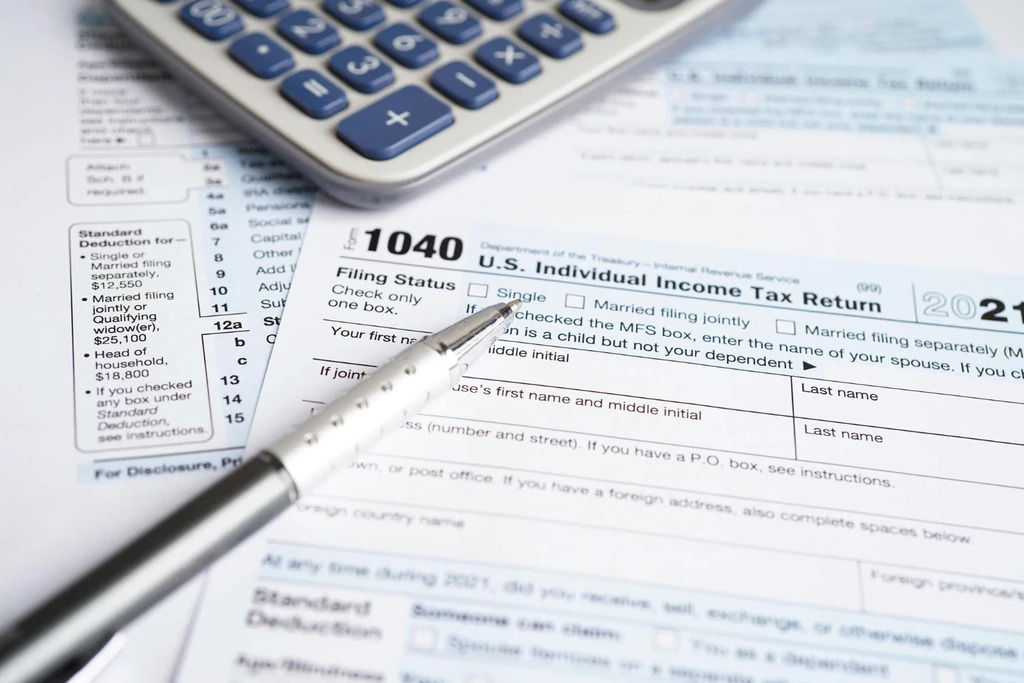When it comes to taxes in the U.S., it’s essential to understand the different identification numbers that exist for taxpayers and businesses. This article explains in detail the key differences between the main identification numbers: Tax ID, EIN, ITIN, and SSN. It will help you understand which one you need based on your personal or business situation, and why it’s important to know this information to properly comply with your tax obligations.
Article Index
- What is a Tax ID and why is it important?
- What is the EIN (Employer Identification Number) and what is it used for?
- What is the ITIN and who needs it?
- Key differences between ITIN, SSN, and EIN
- How to apply for an ITIN in the U.S.?
- What to do if your ITIN has expired?
- What is an SSN (Social Security Number) and who qualifies to get it?
- When is an EIN necessary for your business?
- How does immigration status affect obtaining an ITIN or SSN?
- Frequently asked questions about tax identification numbers in the U.S.
1. What is a Tax ID and why is it important?
A Tax ID or Taxpayer Identification Number is a code issued by the U.S. government to identify individuals and entities that must file tax returns. This number is crucial because it allows individuals and businesses to fulfill their tax responsibilities with the Internal Revenue Service (IRS).
The IRS issues various types of identification numbers, such as the ITIN, EIN, and SSN, for different tax purposes. These numbers are essential for properly filing tax returns, claiming tax credits, and avoiding penalties.
2. What is the EIN (Employer Identification Number) and what is it used for?
The EIN, or Employer Identification Number, is a number issued by the IRS to identify businesses in the United States. It’s necessary for any business that has employees, operates as an LLC, or files business-level tax returns. The EIN is similar to the SSN but is specifically designed for businesses.
This number is required for activities such as opening a bank account, processing business permits, and filing federal and state taxes. Like the ITIN, the EIN is fundamental for tax compliance, both for residents and foreigners with businesses in the U.S.
3. What is the ITIN and who needs it?
The ITIN is the Individual Taxpayer Identification Number issued by the IRS for those who don’t qualify for an SSN but still need to file tax returns. This number is designed for foreigners who aren’t eligible for a social security number due to their immigration status but have the obligation to comply with the U.S. tax system.
In addition to being crucial for tax compliance, the ITIN is increasingly required by some banks to open accounts and access financial services. It’s also used to start building a credit history in the U.S., which can be useful for those looking to establish a solid financial foundation in the country.
4. Key differences between ITIN, SSN, and EIN
The main difference between the ITIN, SSN, and EIN lies in who receives them and for what purposes they are used:
- SSN: Issued by the Social Security Administration for U.S. citizens and some qualifying residents. It’s used to work, receive government benefits, and meet tax obligations.
- ITIN: It’s a taxpayer identification number for those who don’t qualify for an SSN, such as certain foreigners.
- EIN: Issued to businesses and entities for tax and commercial purposes.
Each has a specific purpose, and it’s essential to know which to apply for in each situation.
5. How to apply for an ITIN in the U.S.?
Applying for an ITIN is a process that can be done through Form W-7, which is sent to the IRS along with the corresponding tax return. This number is granted to people who don’t qualify for an SSN but must comply with tax payments in the U.S.
If you apply online, the process can take between 3 and 4 months. However, to speed up the timing, it’s possible to visit an authorized IRS agent in person, which can expedite the processing. The IRS requires certified copies of documents that prove your personal taxpayer identification, such as passports or valid immigration documents. Submitting the application in advance of tax season is key to avoiding delays.
6. What to do if your ITIN has expired?
The ITIN can expire if it’s not used in a federal tax return for three consecutive years or if it was issued before 2013 and is subject to the renewal schedule established by the IRS. If your ITIN has expired, you won’t be able to use it to file your tax returns, which could cause delays in processing your return and receiving your refund.
To renew it, you must submit Form W-7 again along with documentation that proves your personal taxpayer identification, such as passports or valid immigration documents. The renewal process has been simplified in recent years, allowing people with an expired ITIN to renew it before tax season to avoid inconveniences.
7. What is an SSN (Social Security Number) and who qualifies to get it?
The SSN or Social Security Number is the most common identification number in the United States. It’s issued by the Social Security Administration and is necessary to work, receive government benefits, and file tax returns.
This number is available to U.S. citizens, permanent residents, and some people with temporary visas who are authorized to work in the U.S. Without an SSN, you can’t access certain tax benefits or credits such as the child tax credit.
8. When is an EIN necessary for your business?
An EIN is required for any business that has employees, operates as a separate entity from the owner (such as an LLC), or files taxes at the state or federal level. It’s also necessary for those who want to open a business bank account or process certain permits.
Businesses that don’t need an EIN can use the owner’s SSN for tax purposes. However, obtaining an EIN is recommended to separate the business’s tax obligations from personal ones.
9. How does immigration status affect obtaining an ITIN or SSN?
Immigration status plays an important role in determining whether you can obtain an ITIN or SSN. U.S. citizens and some permanent residents qualify for an SSN, while foreigners who don’t qualify can apply for an ITIN.
If you have a visa that allows you to work in the U.S., you can process an SSN. Otherwise, if your visa doesn’t authorize you to work, you’ll need an ITIN to file your tax returns and comply with IRS regulations.
10. Frequently asked questions about tax identification numbers in the U.S.
Can I have an ITIN and an SSN at the same time?
No, once you obtain an SSN, your ITIN is no longer valid.
How long does ITIN processing take?
The IRS generally takes between 7 to 16 weeks to process an ITIN application.
What happens if I don’t renew my expired ITIN?
If you don’t renew your ITIN, you could face delays in processing your tax return and receiving your refund.
Summary of the most important points:
- The EIN is used to identify businesses and is necessary to operate legally in the U.S.
- The ITIN is for people who don’t qualify for an SSN but must file taxes.
- The SSN is the most common identification number and is available to citizens and qualifying residents.
- It’s important to renew an expired ITIN to avoid problems with the IRS.
- Immigration status determines which identification number you can obtain.
Check if your LLC name is available
We'll send the availability results directly to your email
This article does not offer legal or tax advice. If needed, seek the help of a professional. The information provided is for informational purposes only and is publicly available.






